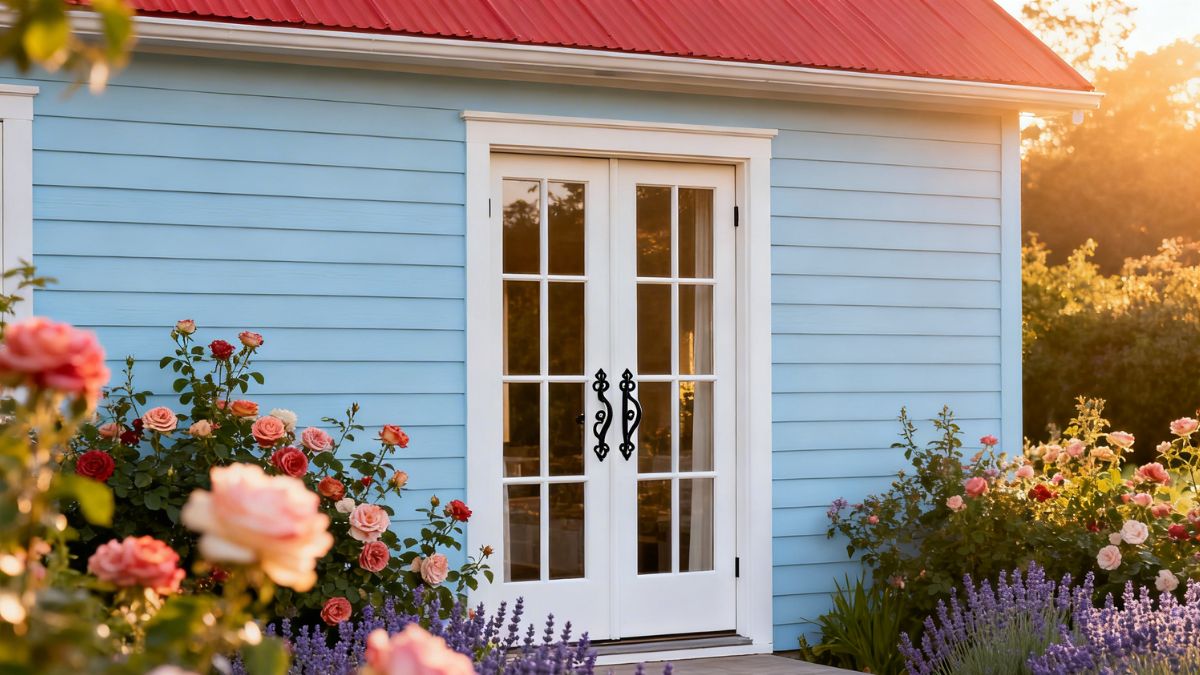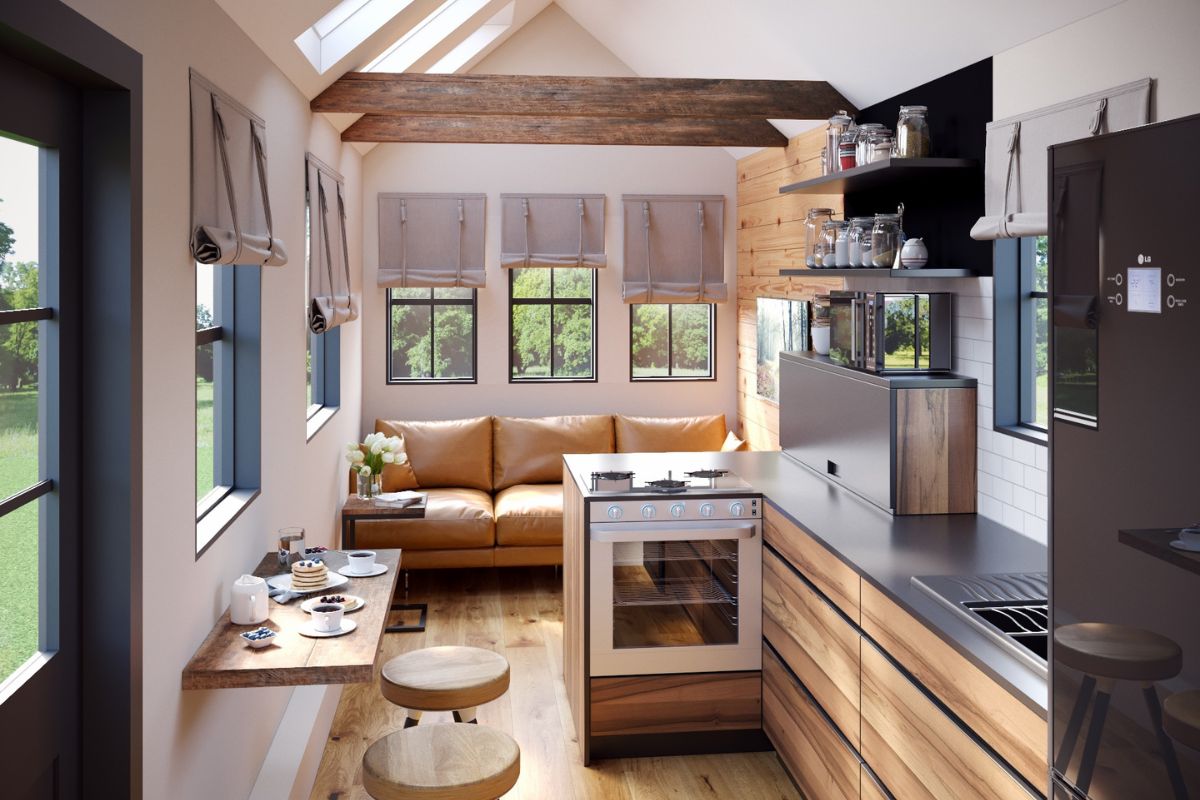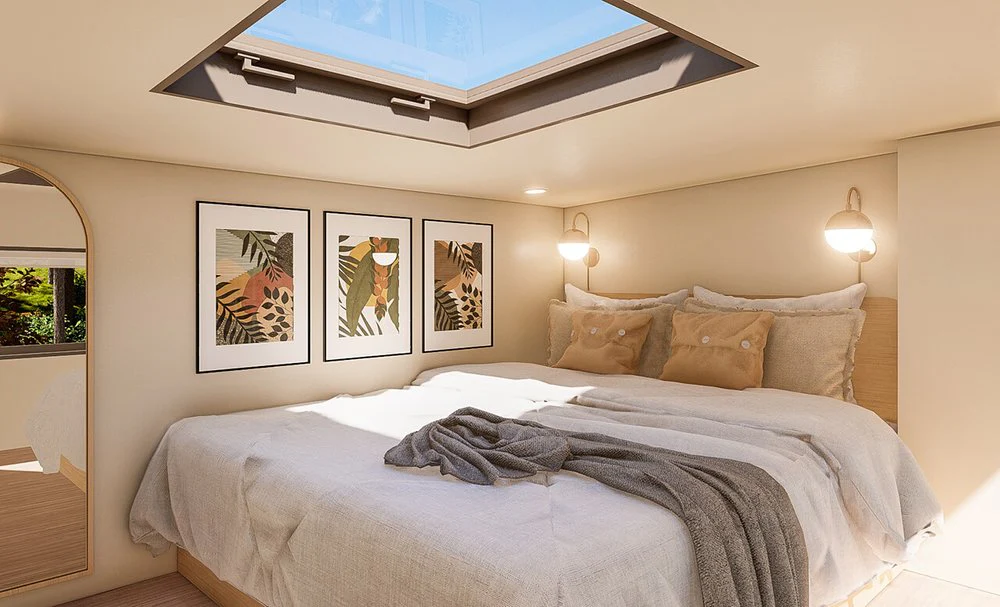Can You Build a Tiny House in West Virginia?

Strict regulations are enforced in West Virginia for dwellings, but that doesn’t mean that tiny houses are impossible to build or find in this State. The International Residential Code for tiny homes that West Virginia follows requires tiny houses to be 400 square feet or less in floor area excluding lofts. However, some counties allow less square footage for tiny houses along with more lenient regulations.
Tiny home communities are starting to expand as people start downsizing their expenses that come with owning a regular home. Transitioning to tiny homes simplifies living while experiencing the benefits that come with this switch. Keep in mind that while tiny homes have become widespread, exploring and researching regulations for a location that you’re interested in building your tiny house is a must.
If you are interested in living or building your tiny house, you may want to consider West Virginia since it is recently ranked as #2 for the lowest cost of living in the United States. In deciding where to buy or build your tiny house, it is good to consider other factors such as the cost of living to know if it’s perfect for you.
To help you determine if West Virginia is the most suitable place for you and your tiny house, this post would provide recent developments on rules and regulations in West Virginia.
Are Tiny homes legal in West Virginia?
Yes, but only in some counties. Various counties in West Virginia implement regulations that are either restrictive or lax and it is different depending on a county’s zoning regulations. Generally, dwellings in West Virginia still follow the International Residential Code for tiny homes which means that a dwelling must be 400 square feet or less in floor area excluding lofts. Despite this, different cities and counties have altered their building codes and regulations which allow tiny homes.
Since different counties have the jurisdiction on whether tiny houses are allowed in their area, the requirements usually differ depending on their local regulations.
Although it can be really challenging to build your tiny house in West Virginia because of the restrictions, there are still counties that allow tiny dwellings which can be a perfect spot for your future home.
If you think West Virginia is the best place for you, it is best to check with the proper authorities to check out the specific local zoning codes, building codes, and regulations when it comes to your tiny house.
What West Virginia counties allow tiny houses?
Although several legislations are dedicated to allowing tiny houses to promote affordable housing and to cater to the growing community of tiny houses, there are still counties that are not as accommodating as others.
As of this moment, the counties that are more welcoming when it comes to tiny houses include:
- Berkeley County
- Morgantown
- Fayetteville
- Lewisburg
- Parkersburg
- Shepherdstown
- Winfield
For Berkeley County, tiny homes are allowed in some areas while in Morgantown, its interest in tiny homes as alternative housing options made them allow tiny houses. In Fayetteville, since tiny homes are associated with ecotourism, they have a more accommodating approach to these types of homes. Lewisburg has lenient regulations when talking about accessory dwelling units (ADUs) while Shepherdstown considered allowing tiny houses as ADUs to address housing needs. In Winfield, certain zones allow tiny homes but it must be no smaller than 400 square feet and are only allowed in areas zoned as Agriculture or Rural.
The best county that can cater to your tiny home needs with a more lax regulation is located in Parkersburg since their Planning Commission approved the creation of a specific zoning district for small homes. The zoning overlay district would allow the construction of smaller-than-normally-accepted homes in a designated area roughly between Virginia and Laird avenues and 16th and Spring streets. The structures can be no larger than 1,250 square feet, with a minimum of 250 square feet per resident, and must be built on lots of at least 5,000 square feet. The houses must have permanent foundations and utilities.

Can you permanently live in a tiny house in West Virginia?
Living in a tiny house in West Virginia is allowable in West Virginia since there are no laws that prohibit permanently living in a tiny house. However, you must keep in mind that there are still other factors to consider when you are planning on living in West Virginia.
Since different counties have different regulations when it comes to the minimum size requirement for tiny houses and areas where you can build one, it is best to look for the county with more lenient regulations that would suit your needs.
If your tiny home is considered a permanent structure on a foundation, it must follow the local building codes with additional requirements. Before building your tiny house, it is recommended that the necessary permits and inspections for the construction or before occupying your dwelling is acquired.
Transitioning to a tiny house is a big change that could be the most suitable for you. So keep in mind that adhering to the regulations is a must to enjoy living with a peace of mind.
How tiny can a house be in West Virginia?
In general, the International Residential Code for tiny homes that the State follows allows tiny dwellings that must be 400 square feet or less in floor area excluding lofts. However, it varies depending on the cities or counties since they have different regulations that amended the statewide laws to accommodate more tiny homes.
For Putnam County, dwellings must be no smaller than 400 square feet, which accommodates some tiny houses, but not all. In Winfield tiny homes must not be smaller than 400 square feet as well but only in areas considered as Agriculture or Rural. In Parkersburg, the approval of the creating of a specific zoning district for tiny houses allowed homes with a minimum of 250 square feet per resident but no larger than 1,250 square feet.
Although there are lenient regulations for tiny homes in some parts of West Virginia, it is very challenging to secure authorization for tiny houses on wheels because of its classification under the West Virginia Code. Tiny houses on wheels would be considered as a recreation vehicle instead of the traditional dwelling which means that it has a different set of regulations to be followed.
Surely, there are challenges for wanting a tiny house in West Virginia but it is not impossible. What is needed is that the two types of tiny houses must comply with the locality’s regulations to ensure your comfort.
Rules and Regulations for tiny houses in West Virginia
In West Virginia, there are no universal regulations to follow when it comes to tiny houses because each county and city regulations are different. For minimum size requirements for tiny houses, different regulations are imposed. However, the smallest dwelling allowed in West Virginia, specifically in Parkersburg, is 250 square feet per resident but it must be built on lots of at least 5,000 square feet and it must have permanent foundations and utilities. For some counties, they only allow a tiny house with a minimum of 400 square feet.
The zoning regulations effective in different counties or city may be similar or not but this regulations can be used as a guide for the allowable structures. Some areas might allow tiny houses as primary residences, while others might only permit them as accessory dwelling units (ADUs) on a property with an existing main dwelling.
In downsizing, tiny houses on foundations and on wheels adhere to different regulations in West Virginia. For tiny houses on foundations, traditional and local building codes might apply while tiny houses on wheels are covered by recreational vehicles, motor home, and mobile home regulations in West Virginia.
Under the West Virginia Code, tiny house on wheels can fall under these categories:
- Mobile Home: transportable structure that is wholly, or in substantial part, made, fabricated, formed, or assembled in manufacturing facilities for installation or assembly and installation on a building site and designed for long-term residential use and built prior to enactment of the federal Manufactured Housing Construction and Safety Standards Act of 1974 (42 U. S. C.§5401, et seq.), and usually built to the voluntary industry standard of the American National Standards Institute (ANSI) -- A119.1 standards for mobile homes.
- Motor Home: every vehicle, designed to provide temporary living quarters, built into an integral part of or permanently attached to a self-propelled motor vehicle, chassis or van including:
- (1) Type A motor home built on an incomplete truck chassis with the truck cab constructed by the second stage manufacturer;
- (2) Type B motor home consisting of a van-type vehicle which has been altered to provide temporary living quarters; and
- (3) Type C motor home built on an incomplete van or truck chassis with a cab constructed by the chassis manufacture
- Travel Trailers: every vehicle, mounted on wheels, designed to provide temporary living quarters for recreational, camping, or travel use of such size or weight as not to require special highway movement permits when towed by a motor vehicle and of gross trailer area less than 400 square feet.

Are there tiny home communities in West Virginia?
Yes, there are tiny home communities in the area although it is not as massive compared to other states. Here is an example:
- Tiny Home Pocket Neighborhood: planned community that consists of clustered homes around a shared space; can apply to MTH or foundation-based TH.
There are other local initiatives that various groups and organizations have begun to start a supportive environment for those who are interested or engaged in tiny house living. There are communities for mobile home parks that allow movable tiny homes, for seasonal vacation rentals, and for tiny homes on wheels, among others. To enjoy the experience of living in tiny houses, joining communities is highly suggested.
Conclusion
Downsizing or living in tiny houses is beneficial to both an individual and the environment. It provides an efficient use of space while also decreasing the costs that comes with living in tiny homes. It provides all your essential needs but a plus is that it creates a smaller ecological footprint! Tiny homes not only give you more financial freedom but also helps you become more sustainable.
In West Virginia, tiny homes must observe the regulations of a tiny house which requires a permanent structure on a foundation or the regulations for a tiny house on wheels. The minimum size requirements must be adhered to depending on the county in which your tiny house is located. In case you want to avoid the hassle of following the specific rules for building a tiny house, you can instead browse existing tiny homes in West Virginia.
If you are interested in living or building a tiny house, make sure to know the rules and regulations for the county that you want to live in.
Here are some ideas on how you can spruce up your tiny home!







.jpg)

